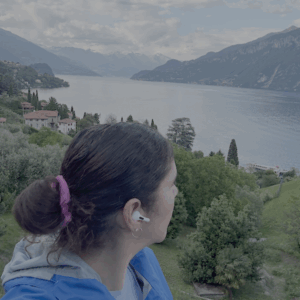Featuring Anne Bivins, RN, MSN, MBA, NC-BC
Nurse coaching is a collaborative effort between a nurse coach and an individual, family or community to assist in reaching the client’s health goals. Hospice care is a supportive program that provides comfort care to individuals who have a life threatening illness with no medical cure. The emphasis is on the client living their life to its fullest- based on that individual’s definition of fullest- and learning how to navigate the final stages of life as that person envisions it.
Hospice Care may be chosen by parents whose infant or child is seriously ill with no other medical treatment options. It is also chosen by people of all ages and faiths when their life can no longer be enhanced by medical or surgical treatments. Hospice care is offered in nursing homes, assisted living centers, apartments, private homes, rest homes, group homes- anywhere a person calls home. Hospice care provides pain and symptom management, the use of music, journaling, imagery, massage, and other comfort measures to assist the patient and family in reaching their goal of a peaceful death.
Nurse Coaching Case Study
A brother and sister contacted me to discuss the care for their parents who lived in an assisted living center. Both parents were in their mid 80’s. The mother’s physical health had declined due to lung cancer and the father’s physical health was good but his mental health continued to decline due to Alzheimer’s disease. The siblings shared the health care proxy for their parents. “We are not sure where to go from here. Our parents have been together in the same apartment at an assisted living facility for 2 years, but we are struggling to figure out what they need to remain safe and what care they need and deserve near the end of their lives. We do not want them to move to a nursing home since it would be too disruptive for them. The assisted living nurse suggested that we meet with you.”
1st coaching session with the siblings occurred in a private room at the Hospice Program
I used a discovery process and attentive listening to the needs and desires of both siblings. I also used motivational interviewing skills to elicit their feelings about rituals for end of life care for their parents. “Our parents have had a full life and we know that they will continue to decline. We just want them to be comfortable and not have to go to the hospital. Their doctors understand and agree with their decision.” I considered that the siblings might have conflicting goals and desires. In fact, they did not. After learning their wishes for their parents, with their permission I offered suggestions for care and services for their parents. We had determined that the desire for change was immediate (within 2 weeks). We co-planned a date and time to discuss the services with their parents and staff at the assisted living facility. I clarified with the siblings that they would be the caregivers for their parents, they would learn how to give the medications as needed as well as be present in between visits of the hospice team members. They willingly agreed to the arrangement. The role of the assisted living facility would continue to include personal care in the morning, meals, room and board. The daughter chose to be the person to follow up with me via telephone in one week.
2nd Coaching Session with the daughter via phone
Daughter: “The meeting went well. My mother understood completely, but we are not sure what my father can understand at this point. He is very protective of my mother and wants to do all that he can for her. He is trying to get her out of bed and trying to tell her to get dressed, but she is unable to get out of bed and now needs oxygen and pain medication. I would like to be present when the hospice nurse and social worker meet with my parents. I think that it would help, especially my father. We are thinking that we should hire staff at the assisted living facility for additional help in the evening and at night since my father is familiar with them and will listen to them.”
Biweekly coaching sessions continued via telephone with the daughter over the next 2 months involving listening and supporting the changes in the care plan as requested by the daughter and son. A peaceful death occurred in the 3rd month for the mother. The siblings felt empowered and that the goals they had outlined were achieved. Follow up bereavement services are planned for the spouse, the siblings, and the assisted living staff over the next 12 months.
![]()
How has the Integrative Nurse Coach® Program enhanced your nursing practice?
“Becoming Board Certified as a Nurse Coach has enhanced my practice as a Hospice Nurse Manager on a daily basis. I use self-care practices regularly and share them with hospice team members. I use holistic interventions including coaching techniques with patients, families, and staff. The Integrative Nurse Coach® Program is unique in that it incorporates Holistic Nursing Practices into the Coaching Process.”
What techniques and modalities do nurses use in the hospice care setting?
“Coaching skills that I have learned and use regularly include deep listening, understanding the goal of the patient, family or staff member, co-partnering with families and staff members to reach their goals and honor their decisions and their readiness for change, and cognitive re-framing to explore other ways of looking at a situation. We also use Holistic Nursing Practices in our hospice program including guided imagery, journaling, meditation at the opening of each of our weekly meetings, self-care support for staff and caregivers, relaxation techniques, music, Reiki, prayer, and being present for each other for support in our work. We believe that when we are present for each other, we are more present for our dying patients and family members. The Community VNA administration and staff support the use of holistic nurse coaching which is fulfilling and exciting for me as a nurse and Hospice Manager.”
- Anne Bivinshttps://inursecoach.com/author/anne-bivins/





